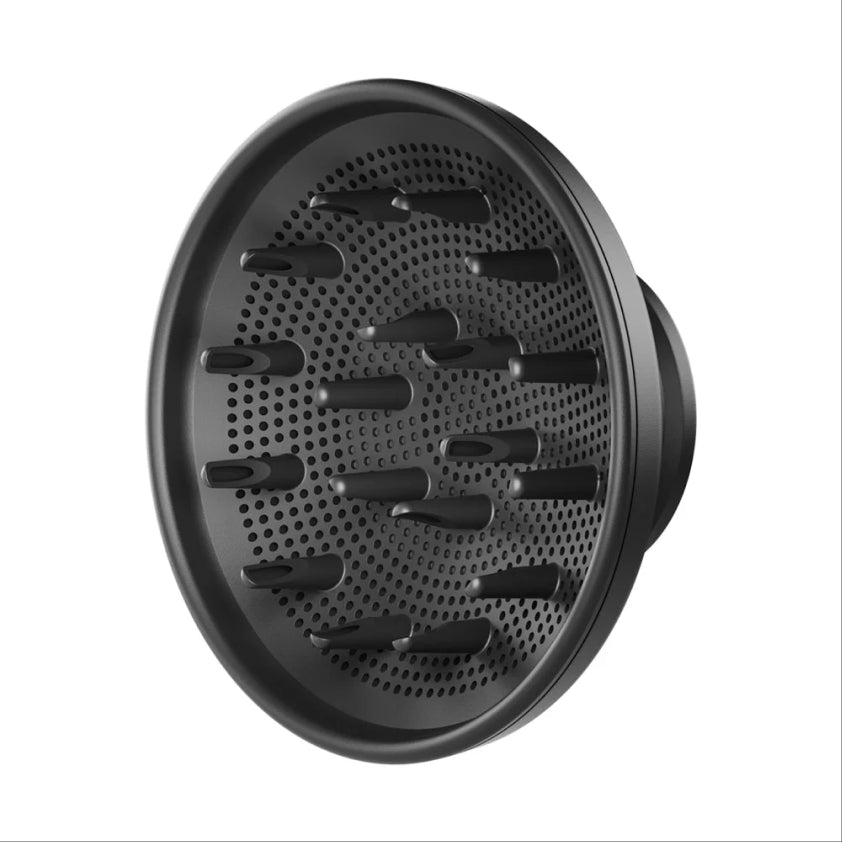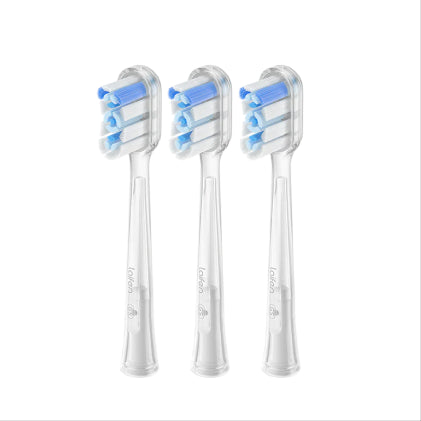
In this article
Tout le monde en fait l'expérience à un moment ou un autre : les gencives gonflées et douloureuses. Aïe ! Les gencives gonflées sont non seulement inconfortables, mais peuvent également être un signe avant-coureur de problèmes de santé bucco-dentaire plus graves. Dans la plupart des cas, l'inflammation des gencives en est la cause. En plus du gonflement, des rougeurs apparaissent souvent. Vous ne ressentez pas toujours la douleur immédiatement, mais elle a tendance à se développer plus tard et est difficile à éviter. Dans cet article, nous vous expliquerons ce qu'il faut faire si vos gencives gonflent et les mesures à prendre pour soulager l'inconfort.
Pourquoi les gencives gonflent-elles ? 3 causes courantes
Si vos gencives sont gonflées, il peut y avoir plusieurs raisons sous-jacentes. Souvent, une combinaison de différents déclencheurs contribue à cette affection. Voici les causes les plus courantes des gencives gonflées :
-
Inflammation des gencives (gingivite) : L’une des principales causes des gencives gonflées est la gingivite, qui résulte d’une inflammation du tissu gingival. Cette inflammation provoque un gonflement de la muqueuse. Une mauvaise hygiène bucco-dentaire en est généralement la cause. Lorsque les bactéries se multiplient le long de la ligne gingivale, cela entraîne une infection et un gonflement.
-
Techniques de brossage inappropriées : Il est essentiel de se brosser les dents correctement. Une pression trop forte sur les gencives peut les endommager et entraîner une inflammation. L'utilisation d'une brosse à dents à poils souples peut aider. Par exemple, la brosse à dents Wave de Laifen est une excellente option dans cette situation. Elle nettoie soigneusement et en douceur vos dents sans endommager les gencives.
-
Traitements dentaires : il n'est pas rare qu'un gonflement se produise après une intervention dentaire. Les traitements prolongés, en particulier, peuvent entraîner un gonflement des gencives. Si les dents de sagesse doivent être extraites, par exemple, le gonflement est un effet secondaire courant. Cependant, ces symptômes disparaissent généralement rapidement.
Autres causes de gonflement des gencives
Plusieurs autres facteurs peuvent entraîner un gonflement des gencives. Les femmes enceintes, par exemple, sont souvent touchées par le gonflement des gencives en raison de changements hormonaux. Ces fluctuations hormonales augmentent le flux sanguin vers les gencives, ce qui ramollit les tissus, ce qui facilite la pénétration des bactéries dans la ligne gingivale. Si le gonflement persiste pendant une période prolongée, une gingivite peut se développer. La gingivite est un type particulier d'inflammation des gencives. Si elle n'est pas traitée, elle peut évoluer vers une parodontite, où les gencives commencent à se rétracter.
Gencives gonflées : combien de temps dure le gonflement des gencives ?
En règle générale, le gonflement des gencives ne dure pas très longtemps s'il est traité rapidement. Lorsque vos gencives sont gonflées, une action immédiate peut aider à réduire rapidement le gonflement. En général, le gonflement des gencives a tendance à disparaître au bout de deux semaines environ. Cependant, la durée peut varier en fonction de la gravité de l'inflammation.
Si l'inconfort persiste et que le gonflement ne disparaît pas, il est essentiel de consulter un médecin. Il est essentiel de ne pas ignorer les symptômes prolongés, car une inflammation des gencives non traitée peut entraîner des problèmes de santé buccodentaire plus graves.
Gencives gonflées : prévenir les problèmes de gencives – trucs et astuces
Les problèmes de gencives peuvent être évités en suivant quelques étapes simples pour maintenir votre hygiène bucco-dentaire. Voici trois étapes essentielles pour garder vos dents et vos gencives en bonne santé :
-
Brossage
Se brosser les dents deux fois par jour permet d'éviter le gonflement des gencives. Veillez à utiliser la bonne brosse à dents, idéalement une brosse à dents électrique à poils souples . La brosse à dents Wave de Laifen s'est avérée efficace dans ce domaine, offrant un soin doux mais complet à vos dents. De plus, l'utilisation d'un dentifrice au fluor est recommandée car il aide à éliminer l'accumulation de bactéries. -
Utilisation du fil dentaire
Après le brossage, l'utilisation du fil dentaire est essentielle pour nettoyer les espaces interdentaires. Le fil dentaire permet d'éliminer les particules alimentaires coincées dans les zones inaccessibles à la brosse à dents. Il est important d'utiliser du fil dentaire après chaque brossage pour assurer une hygiène bucco-dentaire complète. -
Examens dentaires réguliers
Des visites régulières chez le dentiste sont essentielles pour prévenir le gonflement des gencives et d’autres maladies des gencives. Des nettoyages professionnels peuvent aider à prévenir l’accumulation de plaque et d’autres problèmes avant qu’ils ne surviennent.
En suivant ces trois étapes simples (brossage, utilisation de fil dentaire et visites dentaires régulières), vous pouvez prévenir efficacement les maladies des gencives et maintenir des gencives saines.
Remèdes maison pour les gencives enflées : 9 conseils
Les gencives gonflées peuvent être inconfortables, mais les remèdes maison peuvent souvent apporter un soulagement rapide. Voici neuf conseils qui peuvent aider à réduire le gonflement des gencives :
1 : Rinçage à l'eau salée pour les gencives enflées
Un remède éprouvé contre les gencives enflées est le rinçage à l’eau salée. Mélangez une cuillère à café de sel avec une tasse d’eau tiède et rincez-vous la bouche plusieurs fois par jour. Le sel a des propriétés anti-inflammatoires qui aident à réduire le gonflement, procurant un soulagement rapide et peu coûteux.
2 : Thé à la camomille
La camomille a des propriétés apaisantes et anti-inflammatoires. Préparez une infusion de camomille, laissez-la refroidir et utilisez-la comme bain de bouche. Cette méthode aide à calmer les gencives irritées.
3 : Aloe Vera
L'aloe vera est connu pour ses propriétés cicatrisantes. Pour les gencives gonflées, coupez une feuille d'aloe vera fraîche et appliquez le gel directement sur la zone affectée. Laissez agir quelques minutes avant de rincer. Cela peut considérablement favoriser le processus de guérison.
4 : Huile d'arbre à thé
L'huile d'arbre à thé est hautement antibactérienne, ce qui la rend utile pour les problèmes de gencives. Mélangez quelques gouttes d'huile d'arbre à thé avec une huile de support comme l'huile de coco et appliquez-la doucement sur les gencives gonflées. Cela aide à combattre l'infection et à réduire l'inflammation.
5 : Peroxyde d'hydrogène
Un mélange de peroxyde d'hydrogène et d'eau peut faire des merveilles. Mélangez une part de peroxyde d'hydrogène avec deux parts d'eau et rincez-vous soigneusement la bouche. Le peroxyde d'hydrogène agit comme un désinfectant, réduisant l'enflure et nettoyant les gencives.
6 : Compresse froide
L'application d'une compresse froide peut réduire efficacement le gonflement. Enveloppez quelques glaçons dans un linge propre et placez la compresse froide sur la zone affectée pendant 10 à 15 minutes. Le froid aide à soulager la douleur et à réduire l'inflammation.
7 : Ail
L'ail a des propriétés antibactériennes utiles contre l'inflammation des gencives. Coupez un petit morceau d'ail et frottez-le sur les gencives. Veillez à ne pas le laisser trop longtemps sur la peau pour éviter toute irritation.
8 : Gingembre
Le gingembre a également des propriétés anti-inflammatoires. Mâchez un petit morceau de gingembre frais ou préparez du thé au gingembre. Le gingembre peut aider à apaiser l'inflammation et à soulager les gencives enflées.
9 : Pâte de curcuma
La pâte de curcuma est un autre remède efficace. Mélangez de la poudre de curcuma avec un peu d'eau pour créer une pâte. Appliquez-la sur les gencives gonflées pendant 5 à 10 minutes, puis rincez. Les propriétés anti-inflammatoires et antibactériennes du curcuma aident à soulager le gonflement des gencives.
Bien que ces remèdes maison puissent souvent soulager les symptômes, si le gonflement persiste ou s'aggrave, il est important de consulter un dentiste. Un professionnel peut identifier la cause sous-jacente du gonflement et recommander le traitement approprié.
Conseils dentaires pour des gencives saines
Des gencives saines sont essentielles à la santé bucco-dentaire globale, car elles aident à prévenir les maladies des gencives et à maintenir des dents solides. Voici quelques recommandations dentaires clés pour maintenir des gencives saines :
-
Nettoyages professionnels réguliers
Les dentistes recommandent de faire nettoyer vos dents par un professionnel tous les six mois. Des contrôles réguliers sont importants pour détecter et prévenir précocement l'inflammation des gencives et d'autres problèmes. -
Brossage quotidien
Brossez-vous les dents deux fois par jour avec un dentifrice au fluor. Maintenez la brosse à dents à un angle de 45 degrés par rapport aux gencives et nettoyez doucement pour éviter d'endommager les tissus des gencives. Évitez d'appuyer trop fort, car cela peut provoquer une irritation ou des lésions. -
Utilisation du fil dentaire
Après le brossage, utilisez toujours du fil dentaire pour éliminer les particules alimentaires et la plaque dentaire entre vos dents, zones que votre brosse à dents ne peut pas atteindre. -
Nutrition pour la santé des gencives
L'alimentation joue un rôle important dans la santé des gencives. Assurez-vous de consommer suffisamment de vitamine C, qui soutient les tissus des gencives et aide à prévenir les maladies des gencives. Les aliments comme les agrumes, les poivrons et le brocoli sont riches en vitamine C et doivent être inclus dans votre alimentation.
En suivant ces étapes, vous pouvez garder vos gencives en bonne santé et prévenir d’éventuels problèmes dentaires à l’avenir.
Conclusion – Gencives gonflées
Vos gencives sont-elles gonflées ? Une bonne hygiène bucco-dentaire est essentielle pour la santé de vos gencives et de votre santé bucco-dentaire en général. Pour cela, vous pouvez procéder à des soins réguliers et à des contrôles dentaires. Les gencives gonflées doivent toujours être prises au sérieux et traitées de manière appropriée, que le gonflement se situe derrière les molaires, implique des bosses ou d'autres symptômes. Il est essentiel de prendre les bonnes mesures et d'écouter votre corps. Si le problème persiste, consultez un médecin.
Voici un bref résumé des points clés :
-
Que faire si les gencives derrière les molaires sont gonflées ?
Rincez à l'eau salée et maintenez une bonne hygiène bucco-dentaire. Si le gonflement persiste, consultez un dentiste. -
Quelles sont les causes des bosses sur les gencives ?
Les bosses peuvent être causées par des infections ou des abcès. Si elles sont douloureuses, vous devez consulter un médecin. -
Que faire si la gencive supérieure est gonflée ?
Utilisez des bains de bouche à l'eau salée pour réduire le gonflement. Si le gonflement persiste, consultez un médecin. -
Quels sont les symptômes des gencives gonflées ?
Des rougeurs, des douleurs et une sensibilité sont des signes courants. Si vous présentez ces symptômes, consultez un médecin. -
Comment prévenir le gonflement des gencives ?
Maintenez une excellente hygiène bucco-dentaire en vous brossant les dents régulièrement, en utilisant du fil dentaire et en évitant de fumer. Consultez également votre dentiste régulièrement. -
Quel type de brosse à dents dois-je utiliser ?
Une brosse à dents à poils souples est recommandée pour un nettoyage doux mais approfondi.



















